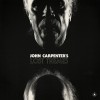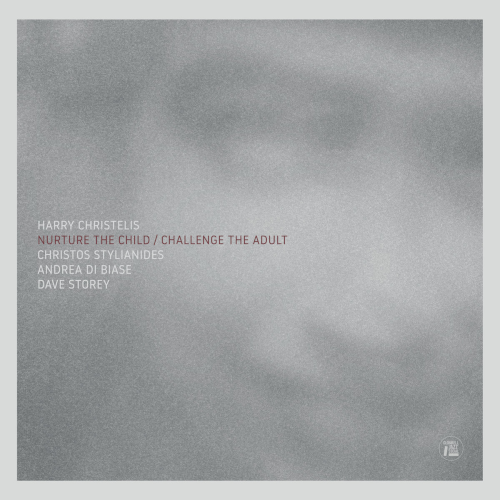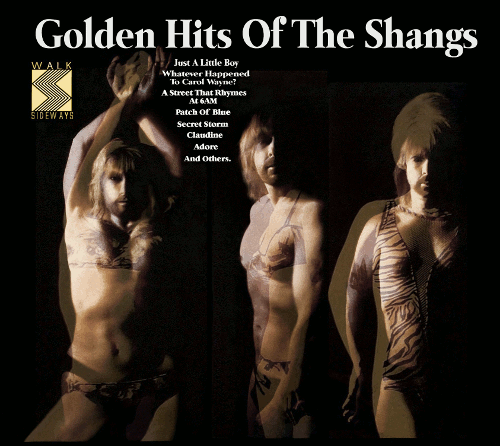 John Carpenter has had quite a career. After writing, directing and scoring some of the greatest horror films of the ’80s, he has since somewhat fallen off the metaphorical wagon, mustering a less than congenial reception to the majority of his output of the last two decades. The exception to this rule however, is his soundtrack work, from which a whole new generation of composers have drawn influence over the last few years — so much so that the mere mention of the man’s surname in a album’s review summons a very clear, very specific image of what an act may sound like. Confronted with such a climate, you would have to have a very poor imagination to not have anticipated the eventual release of Lost Themes, his debut non-soundtrack work, and to not have similarly anticipated the lofty expectations that would hound such a release.
John Carpenter has had quite a career. After writing, directing and scoring some of the greatest horror films of the ’80s, he has since somewhat fallen off the metaphorical wagon, mustering a less than congenial reception to the majority of his output of the last two decades. The exception to this rule however, is his soundtrack work, from which a whole new generation of composers have drawn influence over the last few years — so much so that the mere mention of the man’s surname in a album’s review summons a very clear, very specific image of what an act may sound like. Confronted with such a climate, you would have to have a very poor imagination to not have anticipated the eventual release of Lost Themes, his debut non-soundtrack work, and to not have similarly anticipated the lofty expectations that would hound such a release.
The production is as good as you might expect — every instrument lovingly sequestered across the available frequency spectrum, every sound bursting through the mix, and each track has a clear and definable riff and rise. The sonic palette is widely expanded compared to the earlier soundtrack work, with not just synths and drum machines, but also guitars, pianos and live drums — and yet for all that has been added, it is clear something vital has been lost. If Carpenter’s music was unique, it was because of the strange way it courted classical minimalism, a concern not so much with repetition as with reductionism. This approach, in unison with the ever-drifting tuning of the synthesisers, resulted in some spooky and downright odd passages of music, a back catalogue of soundtracks that succeeded by almost always nearly failing.
Lost Themes, by contrast, sounds more like a rock band covering Carpenter’s source material — whereas once we might have heard a detuned, synthetic cowbell keeping time, now we hear a high-hat, kick drum and snare; where once we might have revelled in a rubbery monosynth drifting across a wall of atmospheric buzzes, now we get a guitar solo and a techno beat. It’s not that the album is bad per se — it sounds amazing, and is chock full of catchy riffs, particularly on opener “Vortex” — it’s simply that it’s nowhere near as interesting as the rest of Carpenter’s work. It’s too perfect, too full, and as such it has shed a lot of the awkward sparsity that once made for such a compelling listen. Indeed, though I can’t claim the sort of unwavering love for the man’s music that it’s increasingly trendy to express, this is the first release of his that has anything on it I actively dislike: “Domain” — an unhappy mix of Van Halen‘s “Jump” and the theme to some daytime gardening show, bafflingly encapsulated in a prog aesthetic.I would perhaps be a lot more forgiving of that song — and the album as a whole — if there wasn’t a fucking guitar solo every few minutes. Literally every time the music gets going, the lovingly-crafted synths are drowned in the cheesiest imaginable shredding, rendering the whole thing decidedly unpalatable. If you’re already a fan of the legions of Carpenter tribute bands out there you’ll probably get a lot out of the album — indeed, if someone was to tell me I was sent the wrong music and this was in fact the new Zombi album, I would have no trouble believing them. If however, you enjoy Carpenter’s compositions because of their indefinable, imitable character and nuance, you might spend the vast majority of the album wondering where such things have gone.
Overall, I can’t admit to being much of a fan of Lost Themes; I found it to be lacking the restrained, repetitive charm inherent in the man’s soundtrack work, a little too polished and full. That said, what the album absolutely need was a dubstep remix, as found on the digital deluxe edition. If you’re going to ruin a man’s legacy, you should at least be committed to the endeavour. I don’t really have a working knowledge of young person music, so it might not actually be a dubstep remix as such, it might be ‘trap-core’ or ‘wobble-bass’ or something, but it definitely exists and it is definitely awful beyond belief, awful to the point that there there’s a very small chance it’s actually made it round to good again. The remix in question, by ohGr, is chocked full of squelchy bass and ‘phat’ drums, and is even replete with some sort of nu-metal chant-like vocal. At one point, someone screams “KILL ME!” It’s that good. It’s a work of genius. I’ve changed my mind. It’s everything music should be, I can’t wait to hear it being played at me through tinny phone speakers from the back of the bus.That Zola Jesus also has a go, basically just doing that warbling thing she does over a slightly more electro version of “Night”, which is neither as offensive or as memorable as the ohGr track, now officially the greatest piece of sound in the history of recorded things. Thankfully, things take a dramatic turn for the better from here on out, with the final four remixes being undertaken by people who are clearly both familiar with Carpenter’s work and have functioning ears. Silent Servant‘s take on “Vortex” might be a little unexciting, but it has a fairly pleasant, clinical charm, and what’s more, you could actual imagine it appearing on a Carpenter film — more so perhaps than his original version. BlancK Mass’s “Fallen” goes the other way, applying a coarse, tribalistic drum beat to the pared-back, atmospheric synths — a decision that serves to intensify Carpenter’s innate moodiness. Metallic, digital drums perpetually build over its six or so minutes to form what is without doubt the most intense moment on the album, punctuated by suitable amounts of claustrophobic reverb.
Given that the vast majority of the classic Carpenter tunes were actually co-written with Alan Howarth, it’s tempting to suggest that the great horror maestro works best with a suitable sparring partner. With that in mind, its a huge shame that Carpenter didn’t team up with JG Thirlwell (AKA Foetus) and Bill Kouligas for the entirety of the album proper, for their remixes are not only the finest moments of the album, but truly spectacular works in their own right.Thirlwell throws up a veritable menagerie of cheesy, rubbery synthesis, with pretty much the perfect amount of everything you could ever want. It is achingly cool, formidably produced and even manages to pull off the addition of a “that-bit-in-the-movie-when-its-all-going-a bit-wrong-but-the-hero-whom-we-had-previously-considered-defeated-is-just-now-rising-from-the-fiery-depths-to-save-us-all-with-a-grimace” string section, which seems both breathtakingly beautiful and abundantly fitting, despite the typical awfulness of such things.
Kouligas, conversely, chops up his prey into a weird formless mess, a soundworld akin to what Carpenter’s printer might sound like left to its own devices, or the air-con unit in the alien spaceships of his mind. It’s a tremendous remix — brave and transformative without blindly ignoring the facets of the original, memorable for its incessant focus of the smallest aspects of timbre and tone. Had the rest of the album been as strong as these two final tracks, it would have been an out and out masterpiece. Sadly, we are left instead with only the briefest taste of what might have been. That, and a fucking dubstep remix.-Daniel Alexander Hignell-



